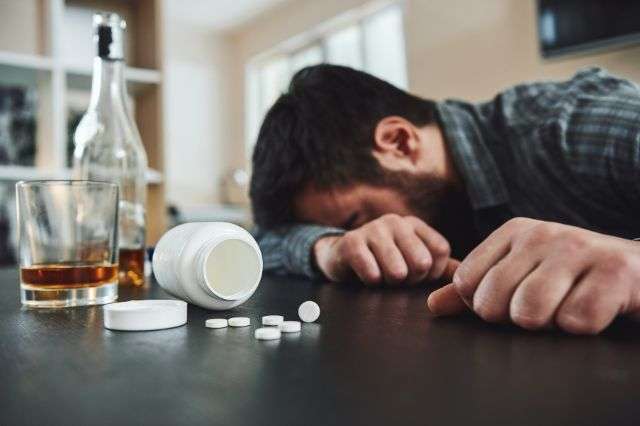Alcohol is among the most fatal substances, as compared with other drugs. In the United States, every year, roughly 100,000 people die because of alcohol-associated causes, which makes alcohol the 3rd leading preventable cause of death in America in an average year after obesity and smoking tobacco. Some of what makes alcoholic beverages so fatal is alcohol withdrawal, both physical withdrawal, and psychological withdrawal.
As a matter of fact, when it pertains to withdrawal from any substance, it’s one of the deadliest alongside Benzodiazepines like Xanax. As such, it’s vital for people to know when they or their family members might need a professional medical detox from alcohol, what alcohol withdrawal symptoms are, what happens within an alcohol medical detox, and what the road to alcohol recovery might look like for you or your family member.
How Will You Know If You Should Get Medically Detoxed from Alcohol?
Alcohol will depress the central nervous system, slow brain function down, and may have a devastating effect on organs like the liver. Over a period of time, regular alcoholic beverage users’ bodies and brains become physically tolerant to alcoholic beverages, and once alcohol exits the body withdrawal symptoms may ensue. Some people who are addicted to alcohol might know that if they’re ever to quit drinking alcohol they’ll need medical detox. For these types of people, fear of withdrawal symptoms might even keep them in the pattern of alcohol addiction.
Those are usually daily alcohol users who might’ve already suffered withdrawal symptoms in the past once they’ve abruptly quit drinking, or once they’ve gone without alcohol for a sufficient amount of time for withdrawal symptoms to ensue. But many people who drink alcohol might not be sure if they have to undergo a medical detox or alcohol detox or if they are able to detox safely on their own at home.
To begin with, if you or a family member experiences alcohol abuse or alcohol addiction, it’s always suggested to get a professional assessment by an addiction expert to ensure your safety. For people who have an alcohol abuse disorder, self-detoxification from alcohol is typically never suggested. But there are a few basic factors you should consider while making a decision as to if you need a medical detox like how much liquor you drink in terms of quantity and frequency, how long you’ve been drinking alcoholic beverages in the long and short-term, if you have trouble with underlying mental health symptoms like depression or anxiety, if you’ve suffered past withdrawal symptoms, if you have problems with any physical health symptoms like seizures or irregular heart rate, and many other types of factors to consider.
Alcohol Withdrawal Symptoms: What Are They?
Symptoms of alcohol withdrawal vary from one person to another with regard to onset, duration, severity, and presenting symptoms. For some people, alcohol withdrawal symptoms may start as soon as two hours after your last drink, with an average onset between 6 – 12 hours. Usually, alcohol withdrawal symptoms last for around 2 weeks, with people typically suffering peak withdrawal symptoms in the initial 2 – 7 days. Less serious post-acute withdrawal symptoms might last for months.
Some common symptoms of alcohol withdrawal include:
- Mood swings
- Depression
- Anxiety
- Agitation
- Irritability
- Clammy skin
- Fatigue
- Restlessness
- Insomnia
- Racing heart rate
- Headache
- Vomiting
- Sweating
- Nausea
- Shakiness
Medical Detox from Alcohol: What Is It?
Medical detox from alcohol: what it means is that you’re being guided and supervised through the detox process by a professional like a nurse practitioner, addiction psychiatrist, or other physician specializing in addiction. A nurse practitioner, doctor, psychiatrist, or another type of licensed addiction expert might prescribe medicine in the short-term in order to assist in safely detoxifying you to prevent life-threatening symptoms while additionally aiding in ensuring physical and mental comfort through the process the best they can.
Even though a pharmacological intervention isn’t always needed for alcohol withdrawal, it might include using Benzodiazepines like Valium or Librium, anticonvulsants like Depakene or Neurontin, or using Babiturates, among others. Such medication is utilized in the short term in order to mitigate withdrawal symptoms and isn’t intended for use in the long term beyond the period of withdrawal.
During the period of medical detox, vitals are also closely monitored throughout the process to assist in effectively managing withdrawal symptoms and decreasing the risk of complications like seizures.
To have a further conversation about medical detoxification for alcohol addiction please pick up the phone and contact a friendly rehab centers in San Diego representative with Pacific Bay Recovery today!


